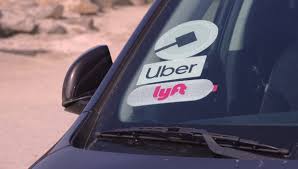In a settlement that includes several benefits and protections, Massachusetts Attorney General Andrea Campbell said on Thursday that will set a minimum pay threshold of $32.50 per hour for drivers for Uber and Lyft.
To address accusations that they broke Massachusetts wage and hour regulations, the two businesses will also have to pay the state a total of $175 million, the great majority of which will be given to their current and past drivers.
Campbell said the settlement ends the years-long legal battle her office had with the two businesses and eliminates the possibility that they would try to amend the state’s employment laws through a ballot proposal in 2024.
According to her, if that question had been asked, drivers would have received insufficient protections and an earnings standard that would not provide minimum pay.
In a written statement, Campbell claimed,
“These companies have underpaid their drivers and denied them basic benefits for years.” “Today’s agreement holds Uber and Lyft accountable and offers their drivers guaranteed minimum pay, paid sick leave, occupational accident insurance, and health care stipends for the first time in Massachusetts.”
“Historic wages and benefits to right the wrongs of the past and ensure drivers are paid fairly going forward,” stated Democratic Governor Maura Healy, describing the settlement.
According to a statement from Lyft, the agreement ends a case that was just brought to trial and eliminates the necessity for an initiative campaign in November.
“What’s more, it’s a significant win in the long-running battle by Bay State drivers to protect their freedom to be self-sufficient and obtain new benefits,” the business stated.
The deal is “an example of what independent, flexible work with dignity should look like in the 21st century,” according to a statement made by Uber.
The corporation stated, “By seizing this opportunity, we’ve resolved historical liabilities by developing a new operating model that strikes a balance between flexibility and benefits.”
“This shows other states what’s possible and reflects what drivers want, allowing Uber and Massachusetts to move forward in a way that both parties can benefit from.”
A ballot proposal that would have classified drivers as independent contractors entitled to certain benefits was being pushed by the firms, but according to Campbell, the settlement eliminates the possibility of the ballot question.
Giving Massachusetts drivers the ability to form a union is the goal of a competing ballot item.
Currently, drivers can receive up to 40 hours of paid sick time annually, or one hour for every 30 hours worked per the agreement, driver applications for Uber and Lyft must be updated to enable drivers to access and claim sick leave immediately within participate in the state’s paid family and medical leave program, drivers will also get a stipend.
As per the agreement, drivers who work for both Uber and Lyft can combine their driving hours to receive a health insurance payout.
A health insurance stipend can be earned by anyone who drives more than 15 hours per week for one or both firms.
This stipend can be used to purchase a plan through the Massachusetts Health Connector.
Laptops 1000Drivers may be eligible for up to $1 million in work-related injury coverage through occupational accident insurance, which will be funded by the companies.
Per the agreement, drivers must get important information from the firms before they are expected to accept a ride, including the location, the duration of the trip, and the expected revenue.
The businesses cannot discriminate against drivers based on race, religion, national origin, sex, sexual orientation, gender identity, disability, or any other protected identity.
They also cannot take legal action against drivers complaining to the Attorney General’s Office about the businesses.
The agreement also mandates that the businesses give drivers access to live in-app chat assistance in English, Spanish, Portuguese, and French; additionally, they must establish an appeals mechanism and inform drivers of the reasons behind their deactivation.

















